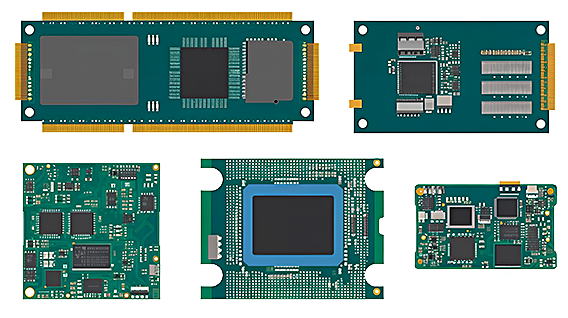The Key to Automotive PCB Material Selection
Automotive PCB are vital components in automotive electronic systems, which carries electronic components and provide electrical connections. The correct selection of automotive PCB materials is critical to ensuring the performance, reliability, and safety of automotive electronic systems. So how do you choose?
1. High Temperature Resistance
Automotive electronic systems often operate in high temperature environments, such as inside the engine compartment. Therefore, it is crucial to select automotive PCB materials with excellent high temperature resistance. Polyimide (PI) is like a magical "thermal insulation cloak", keeping automotive boards cool in electronic systems.
2. Vibration Resistance
The cars will be subject to various vibrations and shocks when driving, so automotive PCB materials must have good vibration resistance to ensure that electronic components will not loosen or be damaged. Choosing fiberglass-reinforced epoxy is like adding a strong armor to your car.
3. Chemical Corrosion Resistance
Automotive electronic systems may be exposed to a variety of chemicals and fluids, such as gasoline, lubricants, and coolants. Therefore, it is crucial to select automotive PCB materials with good chemical corrosion resistance. Polyimide (PI) materials generally have excellent chemical corrosion resistance.
4. Thermal Conductivity
Some automotive electronic systems require effective heat dissipation, so the thermal conductivity of automotive PCB materials is also one of the factors to consider. Aluminum base PCB is like a "magic cooler" and is suitable for application scenarios that require efficient heat dissipation. But sometimes using aluminum PCB may increase manufacturing costs, and the weight of aluminum may also become a problem. Therefore, when considering thermal conductivity, it is necessary to weigh the specific application scenarios to select the most appropriate material.
5. Size and Weight
Automotive electronic systems usually have strict requirements on size and weight, so the density and weight of automotive PCB materials also need to be considered.
6. Cost-effectiveness
Choosing the appropriate automotive PCB material should take into account its performance, reliability, and manufacturing cost. High-performance materials usually increase costs, but they can improve the reliability and life of the system and may be more economical in the long run.
HoYoGo is an international, professional and reliable automotive PCB manufacturer. We have our own factories, advanced machines and excellent and stable quality system, as well as highly automated and dedicated production lines for automotive PCB, which account for 45% of our sales. We can also provide you with preferential metal material prices, support various complex technologies, and customize all your needs. If you have any related needs, please contact us!

评论
发表评论